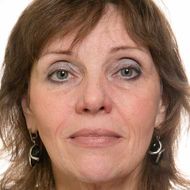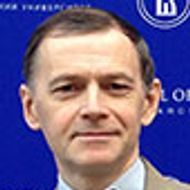- A
- A
- A
- ABC
- ABC
- ABC
- А
- А
- А
- А
- А
- HSE University
- Faculty of Economic Sciences
- Department of Applied Economics
- Events
- Department of Applied Economics' Academic Seminar - Ksenia Andreeva, "Competitive analysis in Russian football"
-
The Department
109028, Moscow
Pokrovsky blvd. 11,
Room S-527
Phone: (495) 772-95-99 ext.27502, 27503, 27498
In press
Yudkevich Maria, Altbach P. G., Salmi J.
Cambridge: MIT Press, 2023.
In press
Kossova T. V., Kossova E. V., Sheluntcova M.
International Review of Economics. 2024. P. 1-15.
In press
In bk.: Oxford Research Encyclopedia of Economics and Finance. Oxford University Press, 2024.
 Living Standards in the USSR during the Interwar Period
Living Standards in the USSR during the Interwar Period
Economics/EC. WP BRP. Высшая школа экономики, 2023. No. 264.

Department of Applied Economics' Academic Seminar - Ksenia Andreeva, "Competitive analysis in Russian football"
Dear colleagues,
Department of Applied Economics invites you to attend the academic seminar that will be held on 02 February, 2017 at 1.40 p.m. Venue: Shabolovka 26, room 3209.
Speaker: Ksenia Andreeva, graduate student of our Department.
His presentation's topic: " Competitive analysis in Russian footbal"
Presentation will be delivered in Russian; however discussion could be switched to English.
Abstract:
"
Competitive analysis in sport economics spread in 60-70s of XX century. Design of tournaments and regulation mechanisms have since been changed, but the problem of institutional barriers and low level of competition has remained unsolved.
Theory of industrial organizations focuses on market organization, its key methods - formal models (including game theory) and empirical models (regression analysis) - allow to describe the effects of changes in the market structure for consumers (fans) and producers (clubs). The market structure of the Russian football changed in 2011, when two Krasnodar teams started playing in the highest league: "Krasnodar" and "Kuban". Сlassic microeconomic assumptions about lower equilibrium price has not confirmed: ticket prices have remained at the same level, demand for the "old" team has not decreased (no correlation between stadium attendance and team success), but interest to derby has increased.
Sport economics has a number of theoretical assumptions that determine its specific role in economical science, for example the uncertainty of the "market" concept. Researchers consider clubs as economic agents competing with each other and maximize their objective functions. On the other hand, there are consumers - fans with demand on sport games. For the purposes of the research football market is considered in two aspects: as the labor market (the transfer market) and the market with clubs competing for consumers.
Sport economy refers to the "social economy", which is characterized by a high degree of government involvement in regulation and price setting. As a result, prices are no longer bear the information function and reflect the situation in equilibrium. It makes difficult to use prices as an explanatory variable, or indicator of the market situation.
Many theoretical conclusions of classical economics cannot be applied to the sport economics. For example, there is still no scientific consensus regarding the restrictions on the transfer market ("limit on foreign players"). There is also no consensus regarding the relationship between competitiveness of the league and its average attendance.
The purpose of the research is to examine the behavior of fans at different market structures, and to identify the key barriers to increase the attendance due to the wrong regulatory policy of football management".
- About
- About
- Key Figures & Facts
- Sustainability at HSE University
- Faculties & Departments
- International Partnerships
- Faculty & Staff
- HSE Buildings
- Public Enquiries
- Studies
- Admissions
- Programme Catalogue
- Undergraduate
- Graduate
- Exchange Programmes
- Summer University
- Summer Schools
- Semester in Moscow
- Business Internship
-
https://elearning.hse.ru/en/mooc/
Massive Open Online Courses
-
https://www.hse.ru/en/visual/
HSE Site for the Visually Impaired
-
http://5top100.com/
Russian Academic Excellence Project 5-100
- © HSE University 1993–2024 Contacts Copyright Privacy Policy Site Map
- Edit


